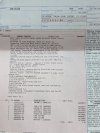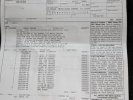Hello,
1st time posting. Hoping someone can point me in the right direction. After 2nd engine replacement within 12 months, all covered by warranty, work by the same out of state dealer, on a 2020 ecodiesel, when ac in use and on 4 or greater fan speed , can get humming or horn like sounds, surging feeling through the gas pedal, and the radiator fan jumps to high speed. Could an ac related tensioner be doing something? Unfortunately I am more of a driver than an operater. Do have an appointment with the dealership where I purchased it coming up. Just want to make sure I am not harming the engine in some way by using the a/c. Engine temps have been low, happens without any load on the truck.
Appreciate any insights.
1st time posting. Hoping someone can point me in the right direction. After 2nd engine replacement within 12 months, all covered by warranty, work by the same out of state dealer, on a 2020 ecodiesel, when ac in use and on 4 or greater fan speed , can get humming or horn like sounds, surging feeling through the gas pedal, and the radiator fan jumps to high speed. Could an ac related tensioner be doing something? Unfortunately I am more of a driver than an operater. Do have an appointment with the dealership where I purchased it coming up. Just want to make sure I am not harming the engine in some way by using the a/c. Engine temps have been low, happens without any load on the truck.
Appreciate any insights.













